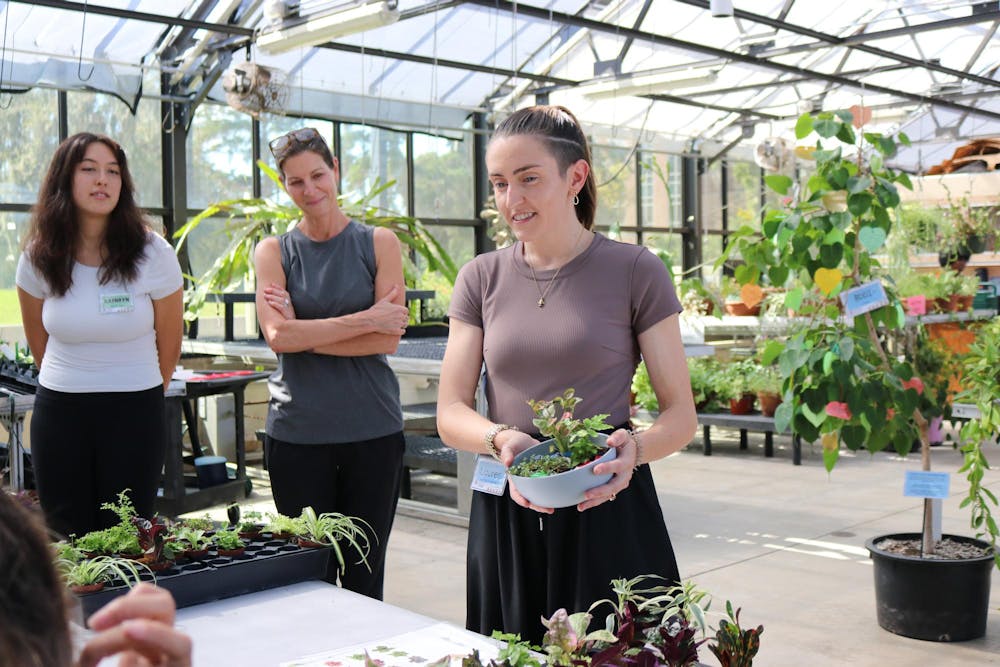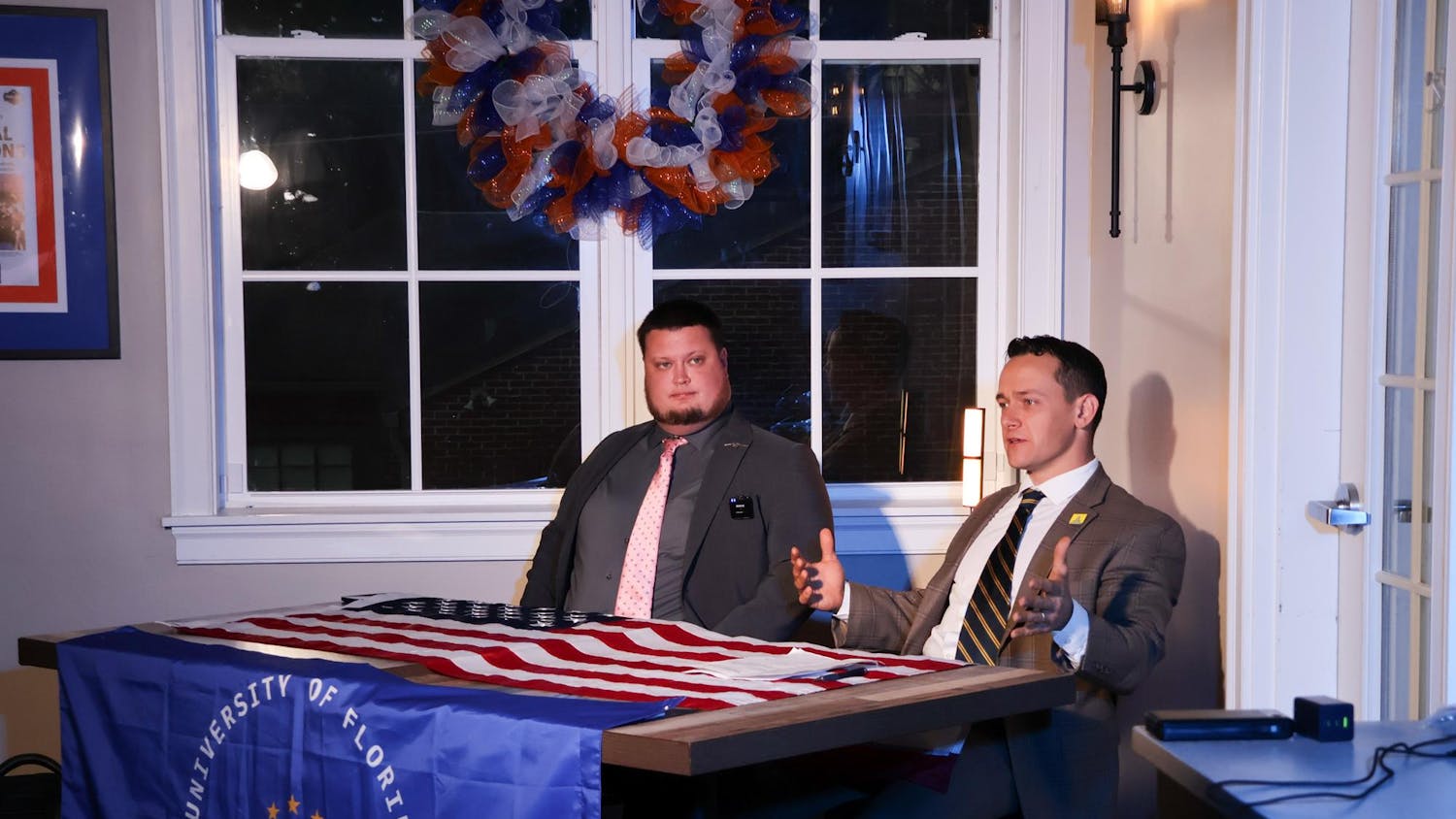Editor's note: This story has been updated to reflect the precise amount of grant funding the program received from UF.
A sacred fig tree stands among a sea of flora in the Wilmot Botanical Gardens greenhouse, the kind under which the Buddha is said to have found enlightenment.
It’s adorned with colorful heart-shaped ornaments, each with a message of gratitude from a student whose life was impacted by the greenhouse’s program.
When studying architecture in college, Leah Diehl, the 59-year-old director of the UF Student Therapeutic Horticulture Program, learned greenhouses had the potential to heal people. Her own brother, who suffered a traumatic brain injury as a child, found tending to plants meaningful, she said.
Diehl’s brother uses a wheelchair and has lived in a residential facility for adults with developmental and physical disabilities for most of his life, where he frequented the greenhouse where Diehl worked. Up to that point, he and others at the facility had only even been taken care of, not the other way around.
“When we are able to put people with particular disabilities … in the role of caretaking … that's a great thing,” Diehl said. “We can return that sense of self-value to them.”
The program launched in 2012 to serve veterans who used the greenhouse’s conference space as an art studio. Since then, it’s served around 25 groups of people with unique health conditions or disabilities. And thanks to a $474,604 grant from UF and plenty of plants, the Therapeutic Horticulture Program also works with UF students struggling with mental health.
Students spend an hour immersed in a calming room of greenery each session, sometimes even stepping out into the gardens to practice yoga. The participants water, trim and propagate the flora, facilitating growth for the plants — and for themselves.
What started as a once-a-week gathering for students expanded into four sessions per week that welcome people of all years and majors. Diehl said college students, who are undergoing a transitional time in their lives, increasingly experience anxiety, depression and academic distress.
On Oct. 9, Diehl and her colleagues published research gathered over the past three semesters demonstrating how horticulture therapy can lessen those symptoms.
Their data found significant improvements in all outcomes measured, including academic resilience and perceived stress. Through connecting with plants and each other, and learning wellness strategies at greenhouse sessions, students acquire self care tools to support their mental wellbeing, Diehl said.
After a semester in the program, students walk away with horticulture knowledge, too — such as the process of transpiration and keeping the environment humid so the plants don’t dry up. They can even take their plants home with them.
Former attendee Nathan Lamm, or the “plant guy”, as his friends call him, has kept some of his plants for almost two years.
The 23-year-old UF mental health counseling graduate student was amazed during his junior year to find such a program existed for free. After spending a semester learning about wellness wheels and making tea from Cuban oregano, he gained insight into his future career, learning new tips for how to best care for his therapy clients.
“I'm just really happy that I got to practice learning a new skill … while also discussing important things like being kind to yourself, being able to take a second and calm down and ground yourself,” he said.
A typical program session includes interactive horticulture activities, such as creating a pixie bowl — an assortment of plants, rocks and random trinkets. Every gathering also includes a wellness strategy meeting in collaboration with a counselor from the UF Counseling and Wellness Center. Students discuss topics such as mindfulness and self-compassion.
Mark Jakubowycz, a 22-year-old UF psychology senior, began interning for the Therapeutic Horticulture Program over the summer, where he plans and leads activities, such as working with biodomes.
Spending much of his time tending to plants allowed him to forget his troubles outside the greenhouse. Just as he and his peers have nurtured a comfortable environment for plant life, nature has provided comfort back.
“The same way that plants can grow and come back from something devastating that happens to them physiologically or physically, I feel like humans can do that the same way emotionally,” Jakubowycz said.
Contact Isabel Kraby at ikraby@alligator.org. Follow her on X @isabelgkraby.

Isabel is a general assignment reporter for The Avenue and is starting her first semester with The Alligator. She is a junior journalism student and transferred to UF from Daytona State College after her freshman year. When she's not writing for Ave, she loves going to concerts, crocheting and designing spreads for Rowdy Magazine.






